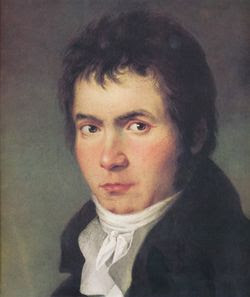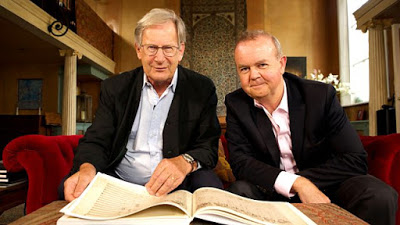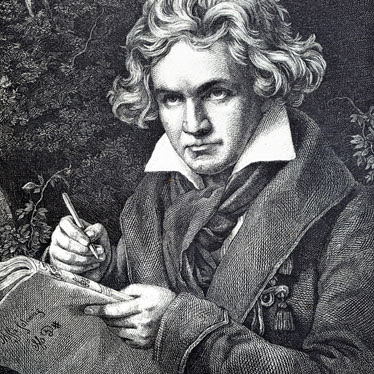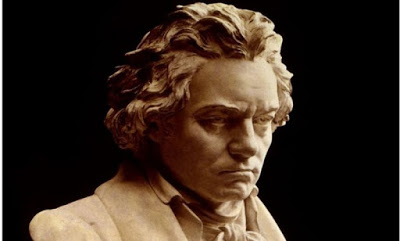The Secret of Beethoven's
Fifth Symphony
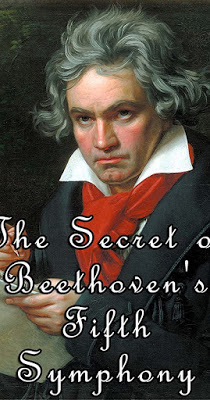
Director:
Guy Evans
Year: 2016
Rating: 7.5
The most famous notes in music I expect are the first four notes of Beethoven's
Fifth Symphony. Ones that are as familiar to most of us as our own footsteps.
Powerful as if announcing the coming of a new age. The entire symphony is
of course magnificent with wild variations throughout - from lovely string
melodies to horns blasting out of hell. An incredible piece of music that
as one musician says absolutely pushed to the limits of what instruments
at the time were capable of. It was first presented to the public in 1808
in Vienna where Beethoven lived. At his own expense as he had rented the
hall to showcase his own music and introduce this symphony. So was it met
with waves of applause, stomps of approval? Not really. The audience was
indifferent to it. Too loud, too busy, too different. Actually too revolutionary.
Nothing had been written like it before. It was the beginning of the Romantic
Age in music. Heroic. Powerful. That night though Beethoven left in total
dejection.
It took a few years before the symphony began to be recognized as a great
body of music. Except in France. Right from the beginning the French recognized
it for what it was - a salute to the principles of the Revolution with the
tunes of two famous songs of the Revolution woven within. This 90-minute
documentary is out to prove that the Fifth was a tribute to the lost cause
of the Revolution by tracing Beethoven's life and his political beliefs.
And dissects the symphony along the way with conductor John Eliot Gardiner
who is in the process of preparing an orchestra to perform it with instruments
from the period in which the symphony was written.
At the time of the Fifth, Beethoven was well on his way to becoming deaf
and he realized this and so many have interpreted those opening notes as
a scream of anger at what fate had in store for him. Yes, the documentary
asserts - that may have been part of it but it was his advocacy of the French
Revolution in its early days promising liberty, fraternity and equality that
so inspired him and his great disappointment as it was hijacked by Napoleon
(who Beethoven had initially dedicated his Third symphony to before he crossed
it out) who made himself Emperor. This was a clarion call to return to the
original principles. Not that Beethoven could publicly say so in Vienna where
the Monarchy ruled with an iron hand crushing any revolutionary fervor immediately.
Though through the lens of history Beethoven is looked upon as a great figure
of the Romantic Age, his good looks, sideburns and unruly hair adding to
the image - but in fact his life was far from being romantic. He was shy,
inarticulate and a miserable failure with women. He proposed to three different
women and was turned down by all of them. Unlike many of the famous composers
at the time - Mozart, Haydn - he refused to become an indentured musician
to a wealthy benefactor - but preferred being a free agent and composing
works and dedicating them to someone willing to pay for the honor. This never
led to a secure financial position and Beethoven was always having to scramble
to earn money. After the Fifth he went on to other great works - the beautiful
6th which may be my favorite and the 9th and the magnificent Chorale at which
time he was totally deaf and had to be turned around at the premiere to see
the audience madly applauding. In the mid 1820's he began to come down with
illnesses and in 1827 he passed away at 56 years old.


